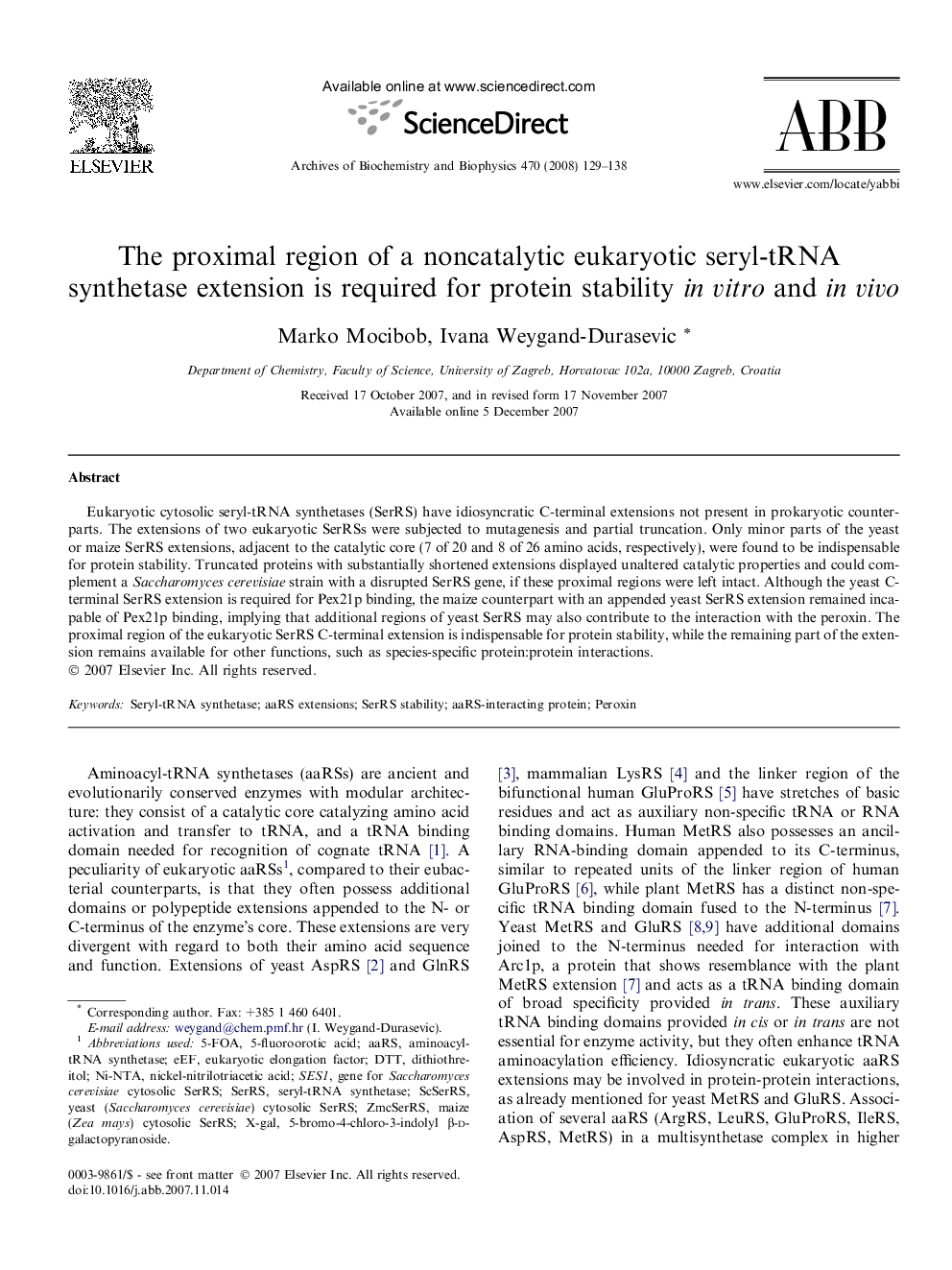| Article ID | Journal | Published Year | Pages | File Type |
|---|---|---|---|---|
| 1926769 | Archives of Biochemistry and Biophysics | 2008 | 10 Pages |
Eukaryotic cytosolic seryl-tRNA synthetases (SerRS) have idiosyncratic C-terminal extensions not present in prokaryotic counterparts. The extensions of two eukaryotic SerRSs were subjected to mutagenesis and partial truncation. Only minor parts of the yeast or maize SerRS extensions, adjacent to the catalytic core (7 of 20 and 8 of 26 amino acids, respectively), were found to be indispensable for protein stability. Truncated proteins with substantially shortened extensions displayed unaltered catalytic properties and could complement a Saccharomyces cerevisiae strain with a disrupted SerRS gene, if these proximal regions were left intact. Although the yeast C-terminal SerRS extension is required for Pex21p binding, the maize counterpart with an appended yeast SerRS extension remained incapable of Pex21p binding, implying that additional regions of yeast SerRS may also contribute to the interaction with the peroxin. The proximal region of the eukaryotic SerRS C-terminal extension is indispensable for protein stability, while the remaining part of the extension remains available for other functions, such as species-specific protein:protein interactions.
